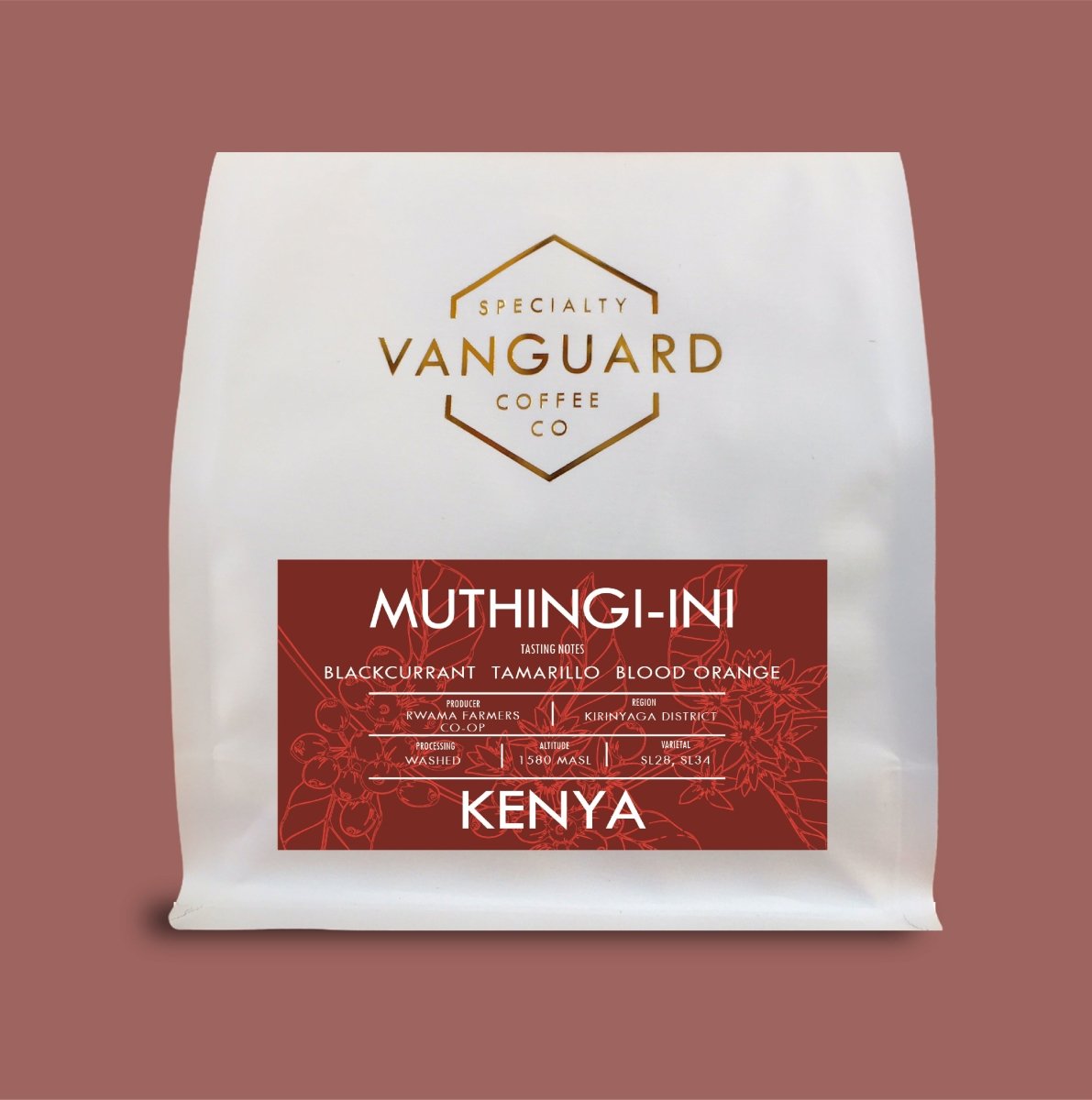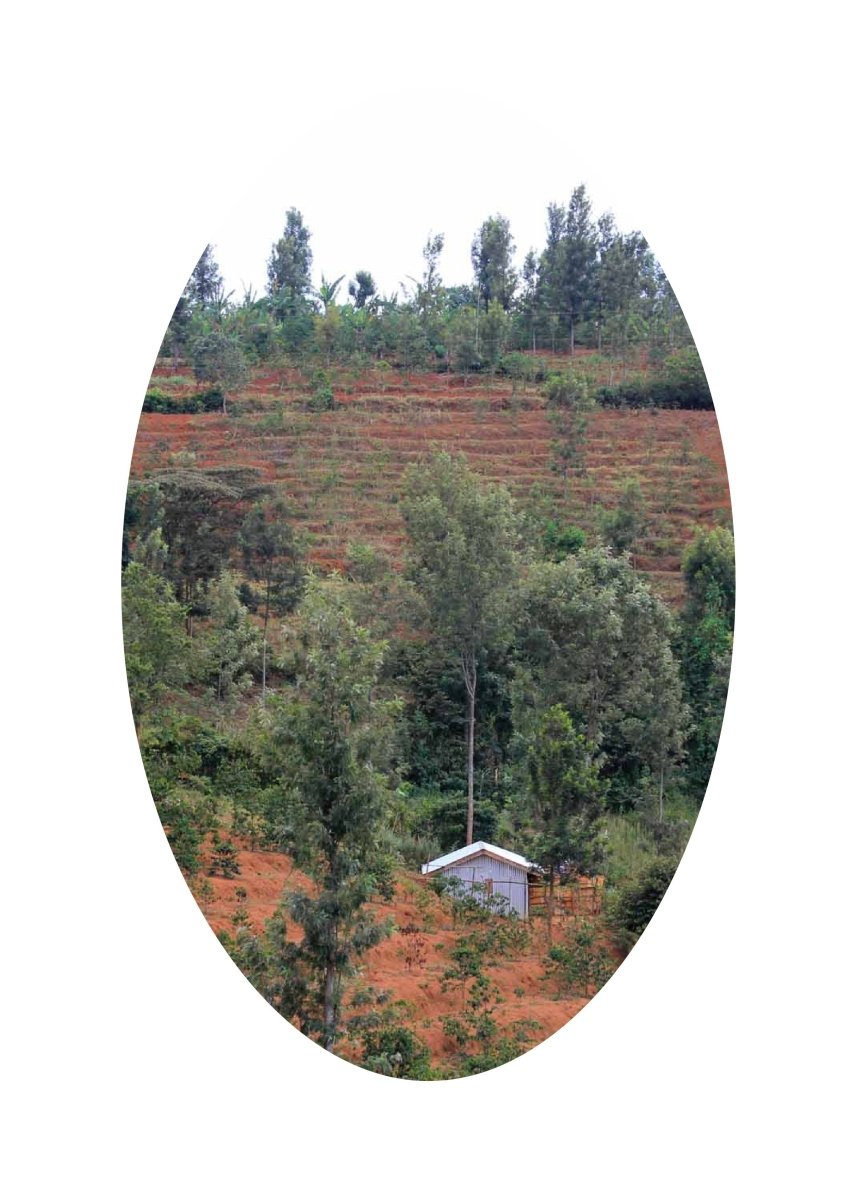Muthigiini Coffee Factory is located in Kirinyaga District, Njukiini location of Gichugu Division near Kianyaga town. It was established in 1968 and rests on a 7 acres piece of land serving Cieni, Gaciongo, Kiaragana and Kariko Villages. Currently it is affiliated to Rwama Farmers Co-operative Society Ltd. Its membership currently stands at 1560 which 1000 are active farmers while 560 are inactive farmers. Muthigiini Coffee factory is run by Cyrus Nyamu, and employs 7 permanent staff.
The area experiences a biannual production cycle with the early harvest being from April–June and the late second season being from October–December. The main varieties of coffee grown are SL-28 and Ruiru 11, with SL-28 accounting to 99% of all coffee produced while Ruiru 11 accounts to 1% of all production
The factory is receiving assistance from Coffee Management Services (CMS) with the long term goal of increasing coffee production through farmer training, input access, Good Agricultural Practice seminars, and a sustainable farming handbook updated and distributed annually. They are striving to establish a transparent, trust based relationship farmers, helping to support a sustained industry growth in Kenya, whilst bringing premium quality coffees roasters, and premium prices to the farmers.
Through the pre-financing they receive, farmers are given advances for school fees and farm inputs. The factory manager is re-trained every year by CMS, in addition to field days being held by the minister of agriculture and agrochemical companies that deliver inputs to the farmers. Demonstration plots are planted at the factory to reinforce the best practices taught throughout the year


